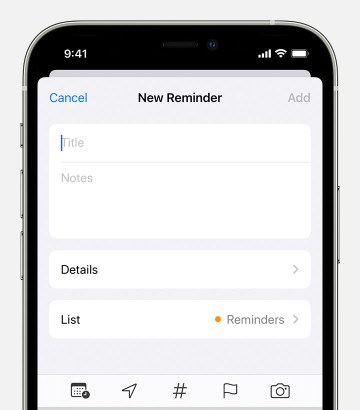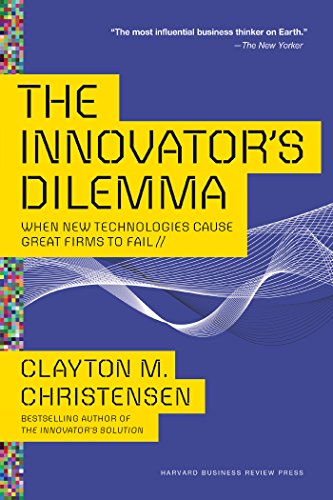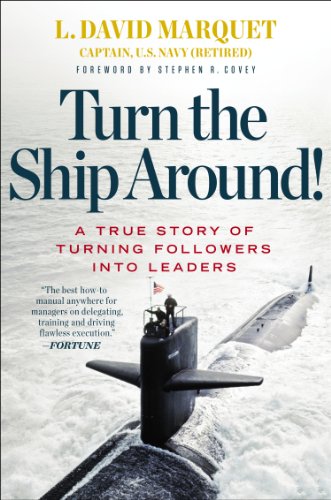Engineering Leadership with Chintan Shah, VP Engineering at Collective & ex-Uber
Published on May 20, 2022
24 min read

Watch on YouTube
Chintan Shan, VP of Engineering at Collective & ex-Uber joins me this week. We talk about the Jobs to be Done framework and great advice for sourcing candidates. In addition, he shares some key points for new managers and two good book recommendations for managers.
Table of Contents
Toggle
- Transcript
- What’s your background, and how did you get into management?
- What are the biggest challenges you face as an engineering leader?
- Could you share with us a lesson you learned as an engineering leader?
- Hiring is an important function of management. What is your approach to hiring?
- What’s your advice for managers who are just starting out?
- What’s your workday like, and how do you manage your time, emails, calendar, etc.?
- What’s a personal habit contributing to your success as an engineering leader?
- Can you share an internet resource, app, or tool that helps you as a manager?
- If you could recommend one book to managers, what would it be and why?
- As a manager, what is your approach to developing & leveling up members of your team?
- What does it take to be a great engineering leader?
- Where can we go to learn more about you?
- Resources
Transcript
[00:00] Vidal: All right. So today I have with me, Chintan Shah. Welcome to ManagersClub. Chintan, how are you?
[00:07] Chintan: Hey, hello everybody. And Vidal thank you for inviting me. Uh, I’m doing great.
What’s your background, and how did you get into management?
[00:13] Vidal: Awesome. Chintan, could you introduce yourself and tell us a little bit about your story and how you got into management?
[00:21] Chintan: Yup. For sure. Uh, I was a backend engineer who had always been fascinated by software engineering. So this is my path of choice in college as well as through high school. So self-taught a little bit with coding before I joined the computer science program in India, which is where I come from.
But yeah, my primary background has been as a backend engineer. Um, as I became better at my own skillset and craftsmanship of software, I realized that I naturally started helping other people in my team and grew very organically that way. I got into management almost like coincidentally.
So I was part of this company where they had recently gone IPO and there was a sort of a migration of people happening who were leaving the company after the IPO. This is about 14 years back now. And so it, it just so happened that I was a tech lead in the team. My manager left the company, his manager left the company, and all of a sudden we started reporting to the VP directly and the VP needed some help.
Obviously, he could not manage all of us directly. That’s how I got into management. He’s like, Hey, can you do this? And I had a very good relationship with my product manager and my teammates because I was the tech lead as well. So I think that was like for the VP, this was like a natural fit.
Little did I know that I needed a lot of mentorship, but we can talk about that later, but yeah, that’s sort of how I got into managing.
[02:04] Vidal: Okay. This seems like a pretty normal path. So I know you’re a VP of Engineering at Collective now.
What are the biggest challenges you face as an engineering leader?
Congrats on your new position. What are some of the challenges you face as an engineering leader?
[02:17] Chintan: I think the first 90 days is where I’m at right now. I joined Collective just three weeks ago, so this is very new for me. Um, trying to learn what the team is doing, what the business is about, what situation we are and the sort of the challenges that I have right now.
So it’s like understanding, learning a lot at the same time, trying to connect the dots between what somebody in marketing just told me versus what my engineer is talking about in a daily standard. To what is the item on the roadmap? I’m still in that phase where I’m drinking from the fire hose.
Could you share with us a lesson you learned as an engineering leader?
[03:01] Vidal: Could you sh you’ve been an engineering leader for a while. And could you share with us perhaps a lesson you’ve learned in your career as an engineering leader?
[03:11] Chintan: Yeah, I think one of the things that I like too. Give an example about the customer obsession part. I learned very late in personally in my career, how important it was to understand who is the customer and how do we serve the customer.
But more so I like the framework of jobs to be done, where you want to think about. Why is your customer sort of hiring you to do whatever, your company’s offering as a service? And I think it was a very interesting way of looking at things that definitely did not come very naturally to me.

It’s — I’ll give you an example. The first example that I learned about that was I was part of this company called shopping.com, which was an online comparison shop. And back in the day, Google did not do shopping comparisons really well. So again, I’m dating myself a little bit, but we would deal with the small businesses who would give us their listings.
These were warehouse owners mostly who are now like Amazon merchants. So this was the version, one of that. And we ended up developing this extraordinary system within the merchant portal for our system for our service where these merchants can come and upload their catalog of what they are doing, what they are selling, and for how much are they selling.
And then we were like, okay, this is very cumbersome. Everybody has to do it uh, by manually entering their stuff. So let’s build an API. We ended up building a SOAP-based XML API. I hope you remember the days, but I’m definitely dating myself.
[04:52] Vidal: I remember SOAP APIs.
[04:56] Chintan: What turned out was there were three merchants out of 1700 who integrated with us.
It was such a poor uptake and we had spent four and a half months, doing the architecture and making sure the scales and all of the good stuff. And this was done in absence of a product manager. So then, we, one product manager had left. We had not been able to hire another one yet.
We ended up building as engineering team does, and we’re feeling really good about ourselves, but the results were poor. And we realized that the basic thing we were missing was, any sort of feedback or understanding of what the customers wanted to really use. Instead, we went the very architectural way of doing things or engineering way of doing things.
That was a big lesson, in my opinion. And then ever since we have, I try to inculcate that. And then as I’ve grown as a manager and a leader. I’ve tried to do the same thing with my teams, as well as I fundamentally Amazon touts this as the top leadership principle among the 14 that they have.
But I feel it’s pretty important as well, that whether you are doing software or not, whether you’re directly connected to your customers or not understanding them is really important. Understanding what you do for them is really.
[06:18] Vidal: I think that’s great. Yeah. And that’s one of the cores of jobs to be done.
What they’re hiring you for you, you were in the Customer Obsession org at Uber, right?
[06:27] Chintan: Yeah. So it’s funny. Yeah. My organization was called Customer Obsession at Uber. Yeah. But we were basically think of as customer service on steroids. Yeah, Uber had some fantastic sort of challenges at scale and yeah, we were able to do a lot by understanding the customers ourselves.
Hiring is an important function of management. What is your approach to hiring?
[06:47] Vidal: Chintan hiring is an important function of management. Could you say a little bit about what’s your approach to hiring and has it changed at all now in this new, remote post-pandemic world?
[07:00] Chintan: I think hiring is one of the most important things an engineering manager or a leader can do.
The best sort of experience I got in terms of hands-on experience with hiring was at Netflix. When I was at Netflix we did not have recruiters. We had just HR business partners. And so all recruiting was purely the function of the engineering manager, which meant, we would get LinkedIn Premium or whatever account we want to.
But we had to source reach people and also figure out what will be the interview process for them because maybe a back end versus a front end, but also depending on what team you’re recruiting for, you might want to customize the interview process. So Netflix takes the freedom and responsibility very much to the heart and that applied to hiring as well.

Photo by Tim Mossholder on Pexels.com
I think hiring is, as I said, very important and. I personally feel that there is a weird situation with the quote unquote standard hiring process where especially for software engineers recruiters feel like almost a step that they want to avoid as much as possible because of all the spam that people get at times.
While there is no proper way to reach them either. So there is a contradictory situation from either side candidates are looking for good companies. Companies are looking for good candidates, but then the whole process seems to be broken. In my opinion, it is very important for hiring managers to focus some effort on sourcing themselves.
At Nextdoor, I was able to work with the recruiting team to customize and change our hiring process. But one of the important lessons I learned from the recruiting team is that the effectiveness of when an engineering manager or engineering leader reach out to a candidate in terms of response rates in terms of their interest to the company is many fold than what will happen if just a sourcer or a recruiter reaches out.
And this is more prominent in the world of software engineers than sort of other functions like program managers or even sales and marketing. So I see this to be prominently applicable to us. My best advice to any engineering managers is learn how to use this tool called Gem gem.com. A really good way to build your pipeline of candidates.
Obviously, LinkedIn recruiting is a great tool. A combination of these two tools will really up your game in terms of hiring. I find that if the hiring manager starts the reach out and does a couple of things, like just an intro call, rather than the recruiter doing the intro calls, the rapport that you build with your candidate improves your closing rate by about 20%, which in this day and world, and I’m speaking from my own experience, but in this day and a 20% closing rate higher than the norm is a huge benefit to any organization as well as your own team. So I would really, insist everybody learned that.
[10:10] Vidal: I think that’s great advice.
I’m not familiar with that tool. So I’ll have to check that out, but I know I did that too. At a previous company where the recruiters would the sources would find people, but then they would ask the engineering manager, can you make the initial contact? Or they would send the email on behalf of me, we had these on behalf of campaigns.
We did a lot of Uber and I think I agree with you. Those are those that can be very successful.
[10:35] Chintan: Yeah. Yeah, totally. Even if the first response is coming to you and you have to take that additional one, I’ve got some stats by the way to share at least based on my experience at next. Which is the response rate, the open rate, and also the closing rate are much, much higher on an aggregate, as I mentioned, 20%, but each one of these, if you think of it as a funnel you can optimize for, if you are the point of contact, as opposed to the recruiter.
And I think that benefits the recruiting team a lot as well. They can focus on the candidates that are a little bit out of the way and create a pool for you. The manager can actually do the reach out.
What’s your advice for managers who are just starting out?
[11:15] Vidal: I think that’s great. What would be your advice for new managers or, managers who are just starting in their careers?
[11:27] Chintan: It’s usually just like what I mentioned about my background. People get into management by being a tech lead or a really good idea. And I think fundamentally having that understanding that this is a big role difference is I think the first important advice I would give really understand what the role is the way I see it is that as an IC, you’re responsible ultimately for your work and not just the quantity, but the quality of the work that you deliver.
As a manager, it’s exactly the reverse. You are responsible for your team’s work, where you don’t really have an authoritarian view to it, but it is more about making people come together. And skills like empathy skills, like really understanding what the work is and nudging people along.
Not being obsessive about, eh, and understanding the personality are some important core competence that you have to start understanding which in my opinion are quite different than what you would do as an IC. So that awareness is really necessary. One other thing that I’d add is that.
Having a mentor is really helpful in this situation. Especially if you have somebody who is not directly in your line of management but maybe in the same organization or the company that they can give you an understanding of the whole aspect without sort of the specifics of it. Because I find that a little bit of therapy and a little bit of guidance go actually a long way when you are making a role change like that.
I personally went through a role change without getting that backing. And after the first year, I realized that I’m actually starting to alienate, the people that I was reporting that, that was part of my team. So I went back to being an IC and then went back to being a manager after learning my skills.
It was a bit hard for me to do that. And I would definitely give the advice to have that mentorship around.
[13:32] Vidal: I think that’s thanks for sharing that. Yeah. Cause it can be difficult, to step into management. You said you went and then you went back and you went again. I want to ask them about mentorship.
Since you mentioned I’m a big fan of mentorship, but one thing, a lot of people, when I talked to them about, yeah, you should have a mentor. They go it’s hard to get a mentor. I don’t know how to get a mentor. Do you have any advice for people, okay, that want to get a mentor?
[13:56] Chintan: Yeah, I think, if you are in a sizable organization where there are other managers around I would just look for what are the qualities that you like in other people that you would like to understand and develop yourself?
It doesn’t need to be one mentor, right? You might have an opinion about somebody else’s communication style being really conducive in meetings or in public speaking. And that is a skill that you want to develop. I go and talk to that person. If they have got some time available to do that, what I found in my career was that it’s surprising how many people are willing to help outgrow other folks.

Photo by Vanessa Garcia on Pexels.com
And all you need to do is just ask. So it’s almost like this elusive thing that people feel that oh, How would I ask somebody to be my mentor or who do I really ask? But I think, just look around and make that first step. I also found sometimes it was important to have that conversation with your own line of management — your manager.
Hey, what do you think about these aspects? And I want to learn a little bit more. Can you connect me to somebody that you would know would be helping out? Even if there is no formal mentorship program in place in your organization, usually your manager will be able to find you somebody who can do that well as well.
So I think it is a good practice to, in my opinion, just ask and I think you will get it.
What’s your workday like, and how do you manage your time, emails, calendar, etc.?
[15:24] Vidal: Okay. I think that’s good. How do you manage everything you have to do your time emails, all the meetings you have as an engineering leader. How do you juggle it?
[15:38] Chintan: I have a process for myself. I’ve seen everybody have their own sort of way of doing this actually Vidal.
You can throw some light on what you do on a day-to-day basis. But this is one thing that I learned from the CEO of Netflix Reed Hastings. He used to have this concept that every week you just think about what are your top three force yourself, pretty ruthlessly to prioritize? What are your top three?
If you start making a to-do list, then you will always have, 17 things or a hundred things on it. And it starts becoming overwhelming. But the top three are really important. So that’s one thing that I. The other thing that I’d say is that the higher up you go in the management chain, the more unpredictable your week is going to become.
So what do I mean by that? I think as a line manager, my rule of thumb would be that about 10 to 15% of things that come your way are going to be surprises. During a week you become a director that starts becoming 30 to 40 percent. You become a VP that starts becoming 60 to 70%. And especially when you are like, let’s say a VP where the VP means the head of engineering, you have to count on anything and everything happening during the week.
So allocating time. For that is really important. People normally think about, okay, I need to accomplish all of this, but then what happens to the ones that are coming your way that are unanticipated? So I’d say also the rule of thumb plan for that time. Don’t fill up your calendar or carve out some time, depending on how your organization works.
So that you can do. And the third thing I would say you allocate is what I call pink time. This is not the unanticipated time, but this is the expected thing that you have to do. You have to keep a tab of how things are going. So for me, I do that assessment, self-assessment on a monthly basis of what I tried to do, what I ended up doing.
And what are the unanticipated things almost as a journal, but I think it’s really important to have a look back on a periodic basis, almost like in an organization you do a monthly business review or quarterly business review. I’d say that as a manager, you need to take a stock of that and allocate specific time to do that as well.
[18:13] Vidal: I think these are great. No, sorry. Sorry. Go ahead.
[18:17] Chintan: I think for me, all of this is about time management but the ruthless prioritization is one thing that I think as you get to know more about your team and your business and your working style you start doing that. For example, right now I’m just three weeks into a new job.
I can’t really do top. But as I get into a steady state of sorts, I will start doing the top three again.
[18:43] Vidal: I think it’s really interesting. The point you made about as the higher and higher you get in the hierarchy, the more percentage of unpredictable things come your way. I hadn’t heard anyone say that in that way, but it seems to make sense.
Chintan. You’ve had a lot of success. You’ve been an engineering leader at lot of companies, Netflix, next door, Uber. What’s a personal habit that’s contributed to your success?
What’s a personal habit contributing to your success as an engineering leader?
[19:14] Chintan: I’d say as a leader, you have to inspire your team. You have to motivate your team. And that, and as I mentioned, the recruiting part as well, there also, you are motivating and inspiring a candidate to join you. They have more options than just you, right? So you had to really look at it from a perspective of where are you at in your journey of being able to inspire other people? To me, that comes from understanding the customer that we serve. So that theme of customer obsession comes back here in this answer. But that is really the singular most important thing, in my opinion, you can carve out a bunch of things out of that.
For example one of the things that I do is as I understand sort of the mission of the organization or the team or the company based on that customer perspective, Then I can convert it into a, an elevator pitch. Then I can convert it into a set of principles that I can convert it into a set of working methodologies.
And how are you going to organize your team around it? So for me, a lot of that starts from understanding the customer and understanding the business urn, which a lot of times as engineering leaders. Is not stated in your job description because you’re focused on the quality and the quantity of software that you are, or your team is responsible for.
But I think it’s really important to do this. So yeah, I’d say that the most important habit is to cultivate is to understand your customer and be maniacally focused on what are we doing and how is it really helping the customer try to attach.
[20:59] Vidal: I love your focus on the customer. I think that’s really fantastic.
Can you share an internet resource, app, or tool that helps you as a manager?
Earlier you mentioned this tool for recruiting that I hadn’t heard of. Are there other, like Internet resource, Internet resources, tools, or things that you find useful that maybe people don’t know about?
[21:17] Chintan: Yeah, I think I find for me what I. What I’ve found is that as I do these like monthly retrospectives, or even if they may not be monthly, but what I’m doing and on a regular basis, I realized that as the world is changing, there are certain new habits that one has to form.
And get rid of the old habits that you have. For example, as we became more remote or as video calls became more prominent in offices, for example, one of my managers early on, so this is like seven, eight years back when video calls became really prominent, pointed out the fact that I would roll my eyes, video.
And everybody would notice that. So that was not a very good thing to do. Now how do you get rid of this? So you have the format. The other one that I’m talking about is okay, how do you focus on the top three and make sure that you are still in the top three and not digress to the top 10 or top 15?
For me, this was, these are the kinds of things that I have realized are habit-forming. And I actually find like just your regular iPhone. The Reminders app is very useful to do that. I’ll set up reminders of every two days or every X number of hours. Something reminds me of saying, I need to do this.

At some point, I start realizing that, okay, that habit is now formed. And so you don’t need to remind yourself anymore because now you’re, inculcated into your behaviors. But I think this one. So for me, the reminder app is really like a habit-forming app, and I’ve seen other people use other kinds of to-do apps, or there are specific apps that, try to do this with certain other ways of psychological behavioral enforcement.
And I’d say that’s an important thing for folks to what works for them? The last thing that I would add there is I’m a big fan of having small sessions like just sitting down and meditating. And this for me is more like a session where I try to settle my brain. It is not really about emptying it out or anything.
But we get so many inputs from slack, from our phone, from a bunch of other things. And for me, I think finding that five minutes or 15 minutes a day of nothing giving me input is important. And so I do use the do not disturb. Pretty heavily on a daily basis. But do it like 15 minutes at a time just to settle down rejuvenate myself, but also rebalance myself sometimes.
[23:56] Vidal: That’s so interesting how you use, like just those basic functions of the iPhone, but you take advantage of them to build habits and. Like times of peace. I think that’s really great.
If you could recommend one book to managers, what would it be and why?
If you could recommend one book to managers, what would it be?
[24:10] Chintan: And why? For me, it would be Clayton Christiansen. I’ll recommend two, but the first one I would do is Clayton Christensen’s Innovator’s Dilemma.
I think it talks a lot about this jobs to be done framework and also how companies think about businesses and how new startups grow and so forth. So I think it is a really useful way of reorienting yourself trying to take yourself out of the weeds and understand the value of the customer obsession part.
The second one that I would recommend is Turn the Ship Around. This is a book by David Marquet. I think that’s how you pronounce his name. And Steve Covey as written the foreword who is like a management guru as well. But I think it is really a good way for leaders to think about what does it mean to be a leader?
What does it mean to be a manager and how do you. Swapping the hats during the course of the day, but still, continue to have a team that is motivated and mission-oriented.
[25:19] Vidal: I think those are both great recommendations. I love Turn The Ship Around. I was in the Navy. I think it’s great.
Yeah. And then also Clayton Christianson is so interesting. Yeah. Has jobs to be done and all that is like super good. So these are great recommendations.
As a manager, what is your approach to developing & leveling up members of your team?
As a manager Chintan, what is your approach or how do you go about doing the career development leveling up of your direct reports, of your team?
[25:49] Chintan: I think starting by inspiration, inspire people to go beyond what they’re able to do today. I think that is the best form of It’s the best form of motivation that you can provide to the team? I think the other thing is being really creative about how do I identify the gaps and what does the person want to do or aspire to do and how to get them there.
A lot of companies have good career development plans, but I think what is really important is to create an environment where people can try trying out new things. And if it is an environment that is not just inspiring and motivating, but also gives a little bit of room for failure.
And celebrate the success really well then you, you have this positive reinforcement. So I think first creating an environment is really necessary. Otherwise, you will feel like you are rubbing against or hitting yourself to all. The second one is what I really like is having goals.
Individuals can share them with their entire team. So for example, if person X is trying to learn a particular kind of architectural pattern because it’s going to help us or wants to now get a more experienced. Because they are interested in mobile development and they are a backend engineer, make it publicly available as a knowledge to the rest of the team as well that Hey person X, and the team is trying to do this.
What I find is that by itself, not just tells everybody that is okay to do these kinds of things, but it becomes really now a corporate effort, the entire team will be helping this person try to achieve their goals. And so I think transparency and creating that space of psychological safety that I’m trying out something new in my career or going to the next step becomes a part of your culture.
I think that’s also really important. So that’s what I would leave it with.
[27:51] Vidal: That’s a really interesting suggestion because I think lots of times, and when people are getting career advice it’s private between them and the manager. This is what I want to work on. This is what you need to work on. And you’re basically saying, share it with other people in the team that this person is trying to work on, develop a certain skill so they can help them with it.
[28:12] Chintan: Totally. I also found that I have been able to motivate the person who is trying to build a skill. Go reach out to person X, Y, and Z, and tell them, Hey, I am trying to build a skill. How do I approach this? Now you are seeking out mentors for particular skill development, almost like a coach. But on the other hand, you are providing the ability to carve out time for them and make it publicly available that, Hey, if this person is spending 20% of the time here in training themselves on mobile, here’s the reason why everybody understands about that.
And I find that it’s almost like it takes a village to grow, raise kids a kind of it takes a village to raise your career to, in my opinion, the more transparency you bring to it it becomes very conducive and it creates a culture around that.
[29:01] Vidal: I think that’s really interesting.
Thank you for sharing that. If you have time, I had one more question and that is. In your mind, what does it take to be a great engineering leader? What are the qualities of a great engineering leader?
What does it take to be a great engineering leader?
[29:18] Chintan: I think this is a really difficult one. This is a really open-ended one as well. My motto personally is to get stuff done with empathy. Uh, I think relating your ethos about the working style and the output-oriented angle to it is really important. So they get things done to indicate that, but then the empathy part is equally important.
My motto personally is to get stuff done with empathy.
I think I’ve seen so many cases where. Things are done, but you feel like a roller coaster just ran through and got it done, but created a lot of, collateral damage there. I would say that if you match your ability to deliver something fast quickly but with empathy.
I think that tries to elevate you from there, the rest of the lot. And I think that’s what leadership is about. I also, think about leaders, not just having followers, but leaders also being able to grow other leaders. And I think that’s equally important. These are two things that I would leave the audience with.
If you were to find your own personal sort of tagline as a metaphor, but yeah, I think it’s really interesting.
[30:38] Vidal: Chintan I’m so happy that you came to the Manager’s Club to share this. So I think you shared a lot of really great nuggets of wisdom and stuff. If afterward, people wanted to reach out to you to maybe learn more about you or follow you or anything what would be the best way for people to contact you?
Where can we go to learn more about you?
[30:58] Chintan: Yeah, definitely reach out to me on LinkedIn. I am pretty active on it. Chintan Shah and my LinkedIn is /in/chintan. So it’s just my first name. So it should be easy. And we can always, have a conversation using our email addresses and or phone call after that. So it would be happy to do that.
[31:20] Vidal: Awesome. Listen, thank you again so much. It was great to have you here.
[31:24] Chintan: Thank you very much, Vidal. It was an awesome conversation.







